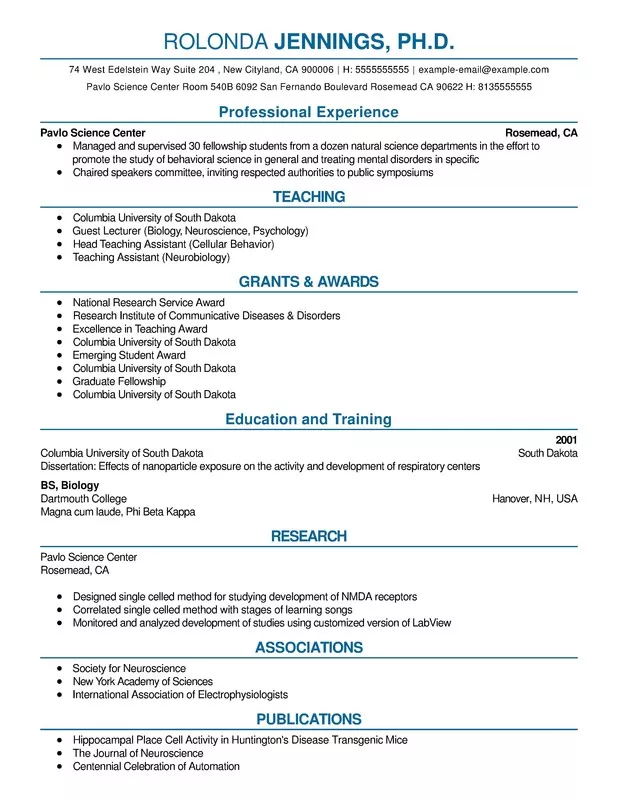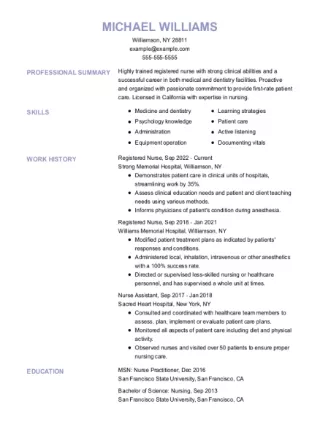Resume References - Tips and Examples on How to List Them
Resume references can help you get hired. Learn how to get the right references and create a resume reference page by following our tips.
Our customers have been hired by*:*Foot Note

Do you put references on a resume?
Professional references are people who have worked with you and can speak about your skills and experience. The best references are those who know you well, can vouch for your abilities and can assure the recruiter or hiring manager that they’re making a good choice in hiring you. But should you include them in your resume?
The short answer is no.
It’s not necessary to put references on your resume or even write “references available upon request” unless the job description explicitly states it. Putting a resume references section on your resume takes up space you could use more effectively to give details on your skills or other important information such as certifications.
Instead, create a separate document to list three to five professional references. Have it ready for when the recruiter or hiring manager requests it and send it to them.
Not sure what your references list should look like? We’ll show you how to put it together below.
Build my resumeResume references examples
Here are some additional references resume examples you can use as a base to format yours:
Build my resumeHow to request resume references
Finding and knowing how to choose professional resume references can feel incredibly daunting. Who can best testify to your work ethic and ability to benefit a company? Here are a few things to consider:
Who should you list as a reference?
You might be tempted only to use managers or supervisors as professional references, but a good rule of thumb is to create a diverse group of references that can give testimonials, such as:
- Direct supervisors
- Former or current coworkers
- Advisors and mentors (can be your teacher, professor or academic advisor)
- Colleagues from other departments
- Business or project partners
- Suppliers or clients you were in constant contact with
These types of colleagues and coworkers can be great professional resume references and provide a fully-rounded portrait of your professional background.
How many references should you have for a professional resume?
You’ll want to get several references, typically between three and five, that have different relationships with you. Try to list a variety of people; you should avoid only having coworkers as references or only having professors as references, for example. Your reference page should allow a potential employer to see diverse relationships.
How do you get permission to add someone to your resume reference page?
When you’ve brainstormed a variety of references, it’s time to reach out to each person. You can write an email or call them. It’s typically best to avoid texts, as they seem excessively casual.
Mention that you’re applying to jobs and looking for people you respect as your references. Then, ask permission to include them as one of your professional references and make sure they provide their updated contact information.
We don’t recommend including people on your reference sheet if you haven’t contacted them. By contacting your references first and giving them details about the job you’re applying for, you show that you care about having a good reference. They’ll be even more likely to provide helpful information about your job performance.
Additionally, if you don’t have a chat with your references first, they will not know why the recruiter or hiring manager is calling or they might ignore the call. In the end, you’re the one that ends up looking unprofessional.
The big takeaways
Before you start looking for professional references, keep the following tips in mind:
- Refrain from including references on a resume. Create a separate resume reference page.
- Don’t write “References available upon request” on your resume unless the job description states otherwise.
- Include at least three professional references.
- Reach out to potential references before including them so they’re in the loop.
- Choose people who can speak to your skills and help you market yourself.
More resume tips and examples
Of course, your resume is about more than just references. ResumeHelp has additional articles, resources and guides for writing a solid resume.
- How to Write a Reference Letter: Read to understand what a reference letter is and how to write one.
- How to Write a Resume: Present your experience and skills like a true professional with our resume writing guide.
- Resume Builder: Create a professional resume in minutes with our user-friendly Resume Builder and land that new job.
- Resume Formats: Learn all there is to know about the three resume formats and choose the best one for you.
- Resume Examples: Find inspiration in our library of resume examples for different jobs and industries.
- Resume Summary: Introduce yourself the right way with our professional resume summary guide.
- Work Experience in Your Resume: Don’t just tell the potential employer where you worked, show them your accomplishments with our expert tips.
- Education in Your Resume: There’s more to the education section than just listing where and when you graduated.
- How to Write a Cover Letter: No job search is complete without a cover letter. Be sure to write the best one using our guide and writing tips.
FAQ: References on a resume
Have questions? We’re here to help.
Do I need a reference sheet on my resume?
No. Think of your reference sheet as a supplementary document. Keep a document with your list of references ready, so that it can be sent to an employer if directly requested. This way, you make it as easy as possible for the recruiter to scan your resume but you also ensure your references are available if necessary.
What do I put for references on a resume?
Your reference list should contain the following information for each reference:
- Name of the reference
- Their contact information
- Description of their relationship to you (i.e., “current colleague”)
- A few details about your experiences with them, and the feedback they can provide about you (i.e., “Joe Thompson is my current manager, and can speak to my skills in project and social media management”)
Should I list “References available upon request” on my resume?
Hiring managers nowadays know that your references are available upon request. They will reach out to you if they need your reference sheet. Adding this line to your resume makes it seem like you’re a bit out of touch with the application process. It also takes up extra space on your resume that you could use for something else.
Do not include that sentence in your cover letter for the same reason.
Who should I avoid asking to be a reference?
In general, you can look for references in all areas of your life. However, you should avoid asking anyone you are currently with or have previously had a professional conflict with. They’re unlikely to give a positive review of your work experience, after all. It’s also best to avoid family members, as this is unprofessional.
Couldn't find the answer you're looking for?





